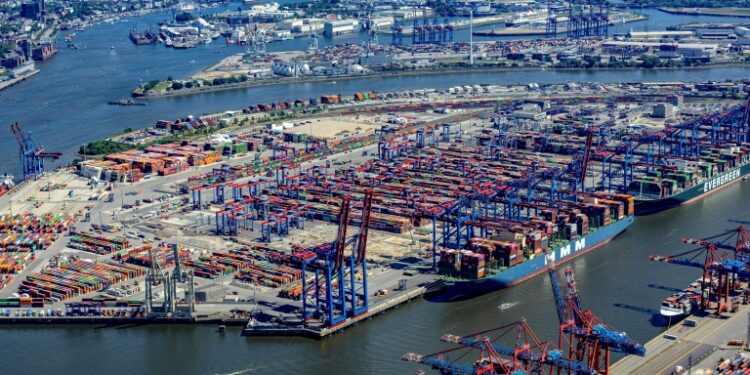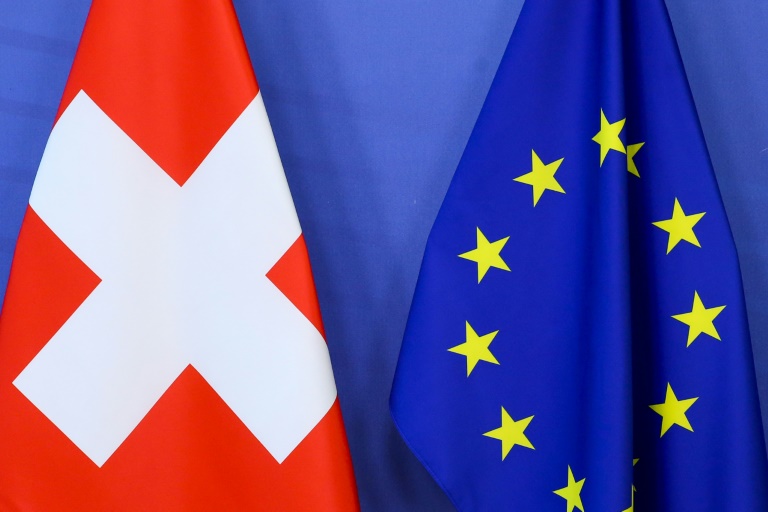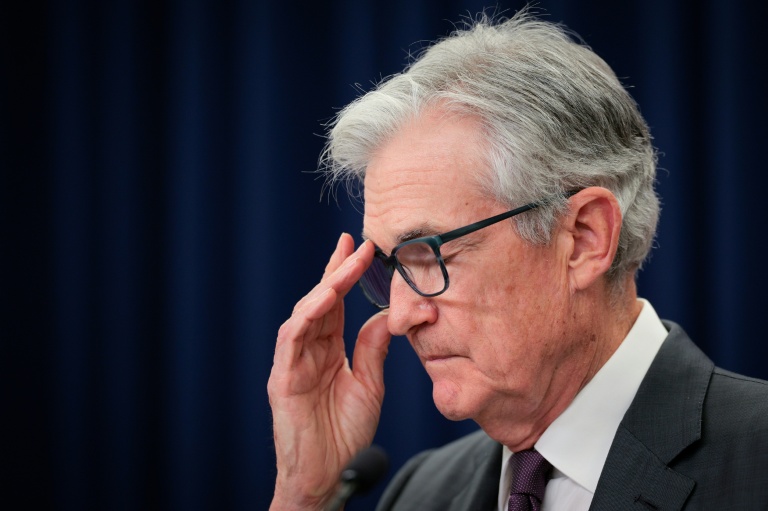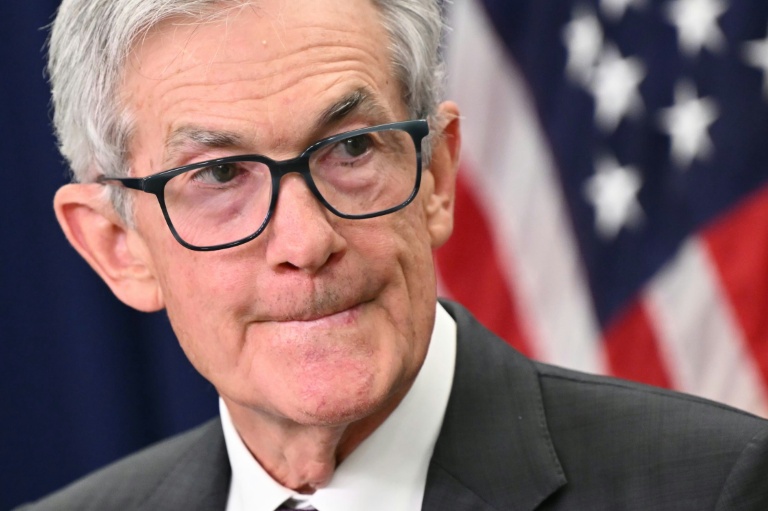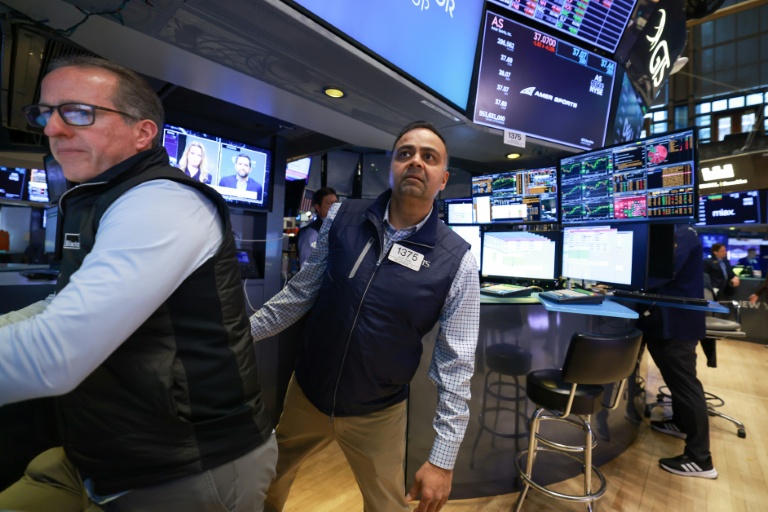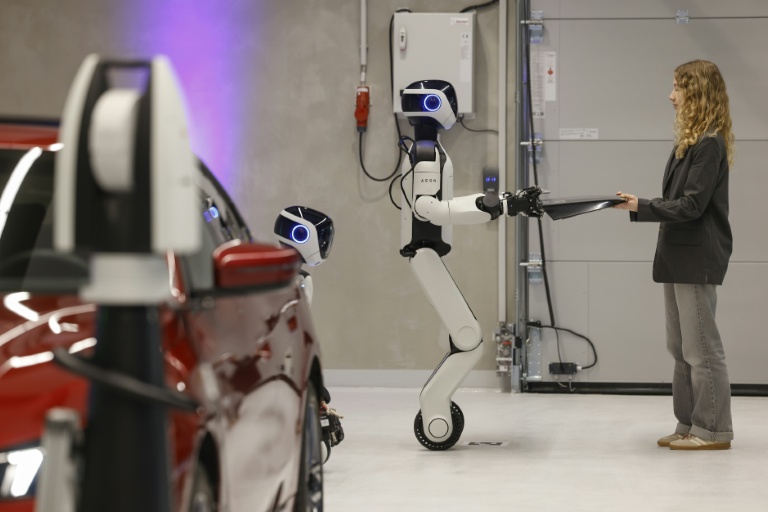Frankfurt (Germany) (AFP) – Germany’s economy shrank more than expected in the second quarter as US tariffs battered exports, official data showed Friday, ramping up pressure on Chancellor Friedrich Merz to turn Europe’s top economy around. Gross domestic product (GDP) fell 0.3 percent from the previous quarter, federal statistics agency Destatis said, a downward revision of its July estimate of a 0.1 percent decline. Goods exports fell 0.6 percent and spending on machinery and equipment dropped 1.9 percent, highlighting the difficulties faced by the country’s manufacturers in the first full quarter after increased US tariffs took effect. The United States is Germany’s largest trade partner, taking about 10 percent of its exports, and is a key destination for products from cars to chemicals.
Household consumption in Germany also came out lower than initial data had suggested, and the manufacturing and construction sectors performed worse than expected. Data released earlier in August showed that German industrial production plunged in June to its lowest level since the Covid pandemic in 2020.
– Trade tensions –
Fixing the eurozone’s traditional export powerhouse has been a priority for Merz, with the economy battered in recent years by high energy costs and fierce Chinese competition. In July, Destatis said German GDP fell 0.9 percent in 2023 and 0.5 percent last year, a contraction even worse than previously reported. Plans to spend hundreds of billions of euros on infrastructure upgrades and rearmament — combined with a series of brighter data releases since the start of the year — had raised hopes that the worst might be over. German business morale rose to its highest level in July after seven straight increases, while think tanks including the respected DIW institute have revised growth forecasts up for this year and 2026.
But ING bank analyst Carsten Brzeski said Friday’s data suggested the increased optimism was a result not of a sustained upswing but rather temporary front-loading as US customers rushed to get orders in before new tariffs took effect. “Optimism alone doesn’t bring back growth,” Brzeski said. “A full reversal of previous US front-loading effects has pushed the German economy back into recessionary territory.”
Though the United States and European Union clinched a deal at the end of July to avert a full-blown trade war, uncertainty around its implementation is hitting German exporters. The two sides released details of the deal on Thursday, with most EU goods facing a 15-percent tariff. Cars, however, are still subject to a 27.5 percent rate, with the tariff dropping to 15 percent only once the EU introduces legislation to eliminate its own levies on US industrial products. “It is hard to see how the export-dependent German economy will be able to get out of seemingly never-ending stagnation,” Brzeski said.
– Budget troubles –
Finance Minister Lars Klingbeil, of the Social Democrats, has meanwhile floated the possibility of tax increases to plug a 30 billion euro ($34.8 billion) hole in 2027 spending plans, sparking swift rebukes from his conservative coalition partners. “The tax burden for companies in Germany is already high,” said Economy Minister Katherina Reiche, from Merz’s centre-right Christian Democrats (CDU) party. “We need to talk about reducing the tax burden, not increasing it.”
The row threatened to act as an extra brake on growth, Brzeski said, blunting the impact of the bumper infrastructure- and defence-spending plans. “The longer a debate on potential austerity measures lasts, the higher the risk that households and companies will hold back spending and investment decisions,” he said. “The German economy has made itself too comfortable in stagnation, and it could take until next year before a more substantial recovery starts to unfold.”
© 2024 AFP

